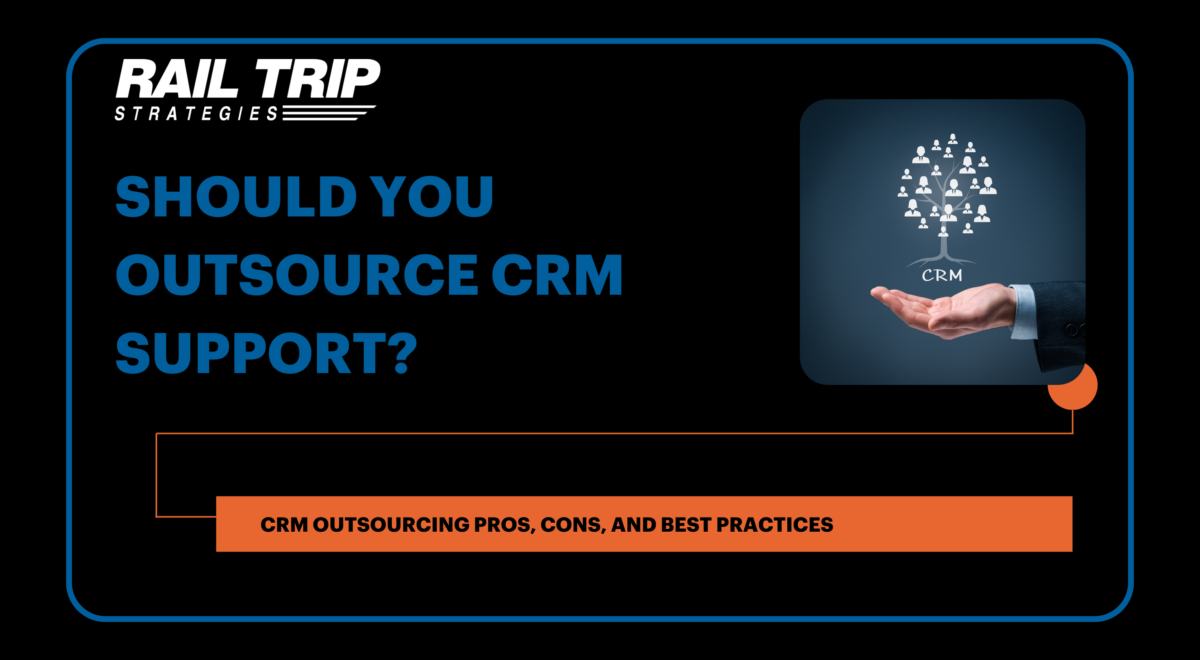CRM outsourcing services are becoming the go-to solution for businesses that want to streamline their sales and customer relationship management without breaking the bank.
Why?
Because managing CRM in-house takes a LOT of resources. We’re talking about hiring, training, software costs, and the constant headache of keeping everything running smoothly.
By outsourcing, you hand over these responsibilities to experts who specialize in delivering top-notch CRM support. This means more time for you to focus on what really matters: growing your business.
But here’s the kicker: not all outsourcing solutions are created equal. Some providers can skyrocket your customer satisfaction, while others may leave you scrambling to fix mistakes.
So, how do you decide if CRM outsourcing is right for your business?
And if it is, how do you choose the perfect partner?
This guide has you covered. You’ll discover the ins and outs of outsourcing CRM – from its benefits to potential pitfalls – and get actionable tips to make the best decision for your company.
Types of CRM Outsourcing Services
Outsourcing CRM services can take various forms, depending on your business needs. Here’s a breakdown of the main types:
Customer Support Services
This is the most commonly outsourced CRM function. These services handle day-to-day customer interactions, ensuring customer satisfaction while freeing up your team for other tasks.
- Call Centers: Manage incoming and outgoing calls with dedicated customer service representatives.
- Live Chat Support: Provide real-time assistance through website chat widgets.
- Email Support: Address customer queries and issues efficiently through professional email responses.
Why it’s useful: These services ensure that your customers receive prompt and professional responses, enhancing their overall experience.
Technical Support Services
CRM software is powerful, but it often requires technical expertise. Outsourcing technical support can help you manage these tasks without needing an in-house team.
- Software Troubleshooting: Solve technical glitches in CRM systems promptly.
- System Upgrades: Ensure your CRM tools are updated to the latest versions.
- Integration Support: Seamlessly integrate CRM software with other business tools.
Example: A retail company used outsourced technical support to integrate their CRM with an e-commerce platform, reducing order processing time by 30%.
Data Management Services
Your CRM is only as good as the data it holds. Outsourcing data management ensures your system stays clean, organized, and actionable.
- CRM Data Entry: Accurately input customer information into your system.
- Data Cleansing: Remove duplicates and correct errors in customer data.
- Database Management: Keep your CRM database organized for better performance.
Pro tip: Regularly updating and cleaning your customer data helps improve targeting for marketing campaigns.
Advantages of CRM Outsourcing
Outsourcing CRM tasks can transform your business. Here’s how:
Cost Efficiency
Running an in-house CRM team is expensive. Outsourcing eliminates costs related to:
- Hiring and training staff
- Purchasing CRM software and tools
- Ongoing operational expenses
The bottom line: You save money while maintaining high-quality service.
Access to Expertise
Outsourced CRM providers bring specialized knowledge to the table. They’re skilled in:
- Managing customer relationships effectively
- Using advanced CRM tools for better insights
- Scaling services during peak demand
Real-life example: A marketing agency we worked with last year outsourced their CRM setup and management to our team, which helped lead to a 40% increase in revenue that year.
Outsourcing CRM services isn’t just a cost-saving measure – it’s a strategic way to increase revenue, enhance your customer experience, and scale your business effectively.
Disadvantages of CRM Outsourcing
While CRM outsourcing services come with many benefits, there are potential downsides you need to consider. Let’s break them down so you can make an informed decision.
When you outsource CRM tasks, you’re giving up some control over customer interactions. This can lead to:
- Inconsistent service quality if the provider doesn’t align with your brand values.
- Miscommunication or delayed responses might frustrate your customers.
Solution: Set clear expectations through service-level agreements (SLAs) to maintain control over key aspects of customer service.
Potential Quality Issues
Not all outsourcing providers deliver the same level of service. Issues like undertrained staff or lack of industry expertise can hurt your brand reputation.
Outsourcing also requires handing over sensitive customer data, which raises concerns about:
- Data breaches
- Improper handling of confidential information
Pro tip: Choose providers with a proven track record of maintaining strict data security protocols.
Cultural and Communication Barriers
Outsourcing often involves working with providers in different countries. While this can save costs, it may introduce challenges like:
- Language differences that affect customer communication.
- Misalignment in cultural understanding could lead to awkward customer interactions.
To minimize these risks, ensure your outsourcing partner invests in cultural training and multilingual support.
Factors to Consider When Choosing a CRM Outsourcing Partner
Selecting the right partner can make or break your CRM strategy. Here’s what to look for:
Service Quality and Reputation: Read client testimonials and case studies to verify the provider’s reliability.
Technological Capabilities: Ensure they use advanced CRM tools and stay updated with the latest industry trends.
Customization and Flexibility: The best providers offer tailored solutions that align with your business needs.
Compliance and Data Security: Verify that they adhere to regulations like GDPR or HIPAA and employ robust security measures.
Actionable Tip: Request a demo or trial period to evaluate their services before signing a long-term contract.
Best Practices for Successful CRM Outsourcing
To maximize the benefits of outsourcing, follow these tips:
- Maintain Clear Communication: Set up regular check-ins and feedback sessions to ensure alignment.
- Monitor Performance: Track effectiveness by using KPIs like customer satisfaction scores and resolution times.
- Foster Collaboration: Treat your outsourcing partner as an extension of your team rather than a separate entity.
By addressing these potential pitfalls and following best practices, you can mitigate the risks of CRM outsourcing and make it a valuable asset for your business.
Ready to supercharge your sales strategies? Rail Trip Strategies is here to help.

